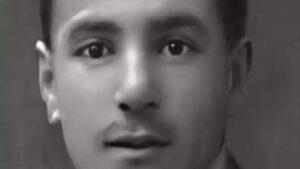Inside the chilling ‘house of horrors’: Unraveling the dark mystery of Covid syndrome behind three children’s captivity
Ever wonder how the shadow of a pandemic could turn a family’s home into something closer to a “house of horrors”? Well, in Oviedo, Spain, three kids—eight-year-old twins and their 10-year-old sibling—were just freed from exactly that kind of nightmare, kept captive not by villains, but by the foggy aftermath of what’s being called ‘Covid syndrome.’ Picture this: the kids, still masked up as if the world outside never moved on, and the police stepping inside only after being told to don face coverings themselves. Talk about living in a time warp! But beyond the bizarre visuals lies a more chilling question—how does anxiety so warped by a global crisis twist into mental chains binding innocent children? It seems the pandemic’s impact isn’t just about virus counts and lockdowns but about mental scars we’re only starting to understand. Intrigued? LEARN MORE.
So-called ‘Covid syndrome’ is thought to be the reason why three children were being held captive by their parents.
Earlier this week, police in Spain rescued three kids (eight-year-old twins and their 10-year-old sibling) from a property in Oviedo, northeast of the country.
The children were pictured wearing face masks as if still following the previously-enforced pandemic guideline of wearing a face covering when out in public.
Reportedly police were asked to wear one by the children’s mum when they went into the house as well.
It was a neighbour who alerted the authorities to the unusual situation after they said that the school-aged children didn’t appear to ever leave their home (described as a ‘house of horrors’ by law enforcement), not even to get an education.
It’s since been revealed that the parents have something called ‘Covid syndrome’.
.jpg)
The house were the children are thought to have been held (PABLO LORENZANA/AFP via Getty Images)
Speaking on this, Oviedo Police Chief Javier Lozano said: “We’ve all been affected by Covid syndrome and what the pandemic has brought, and we can speculate about what led a family to live locked up for so long.”
But what exactly is apparent mental illness?
According to VeryWellMind, symptoms of Covid Syndrome, also known as COVID Anxiety Syndrome (CAS), include compulsively checking for symptoms of COVID; avoidance of public places; obsessive cleaning; and other manipulative behaviours.

Some people are still fearful of the virus (Getty Stock Image)
The website also states that a person with the condition may have trouble thinking about anything other than COVID-19.
It was further noted that someone with CAS might find that their anxiety interferes with their everyday life and that they isolate themselves when it’s not necessary.
Physical symptoms might come in the form of frequent headaches and stomach aches.
The World Health Organization (WHO) has previously warned about the devastating impact the pandemic was having on people’s mental health.
.jpg)
The Spanish property was described as a ‘house of horrors’ (PABLO LORENZANA/AFP via Getty Images)
Speaking in 2022, it was revealed that there had been a 25 percent increase in anxiety and depression worldwide, believed to have been caused by lockdown.
“The information we have now about the impact of COVID-19 on the world’s mental health is just the tip of the iceberg,” Dr Tedros Adhanom Ghebreyesus, WHO Director-General, said of this at the time.
He went on: “This is a wake-up call to all countries to pay more attention to mental health and do a better job of supporting their populations’ mental health.”
If you’re experiencing distressing thoughts and feelings, the Campaign Against Living Miserably (CALM) is there to support you. They’re open from 5pm–midnight, 365 days a year. Their national number is 0800 58 58 58 and they also have a webchat service if you’re not comfortable talking on the phone.











